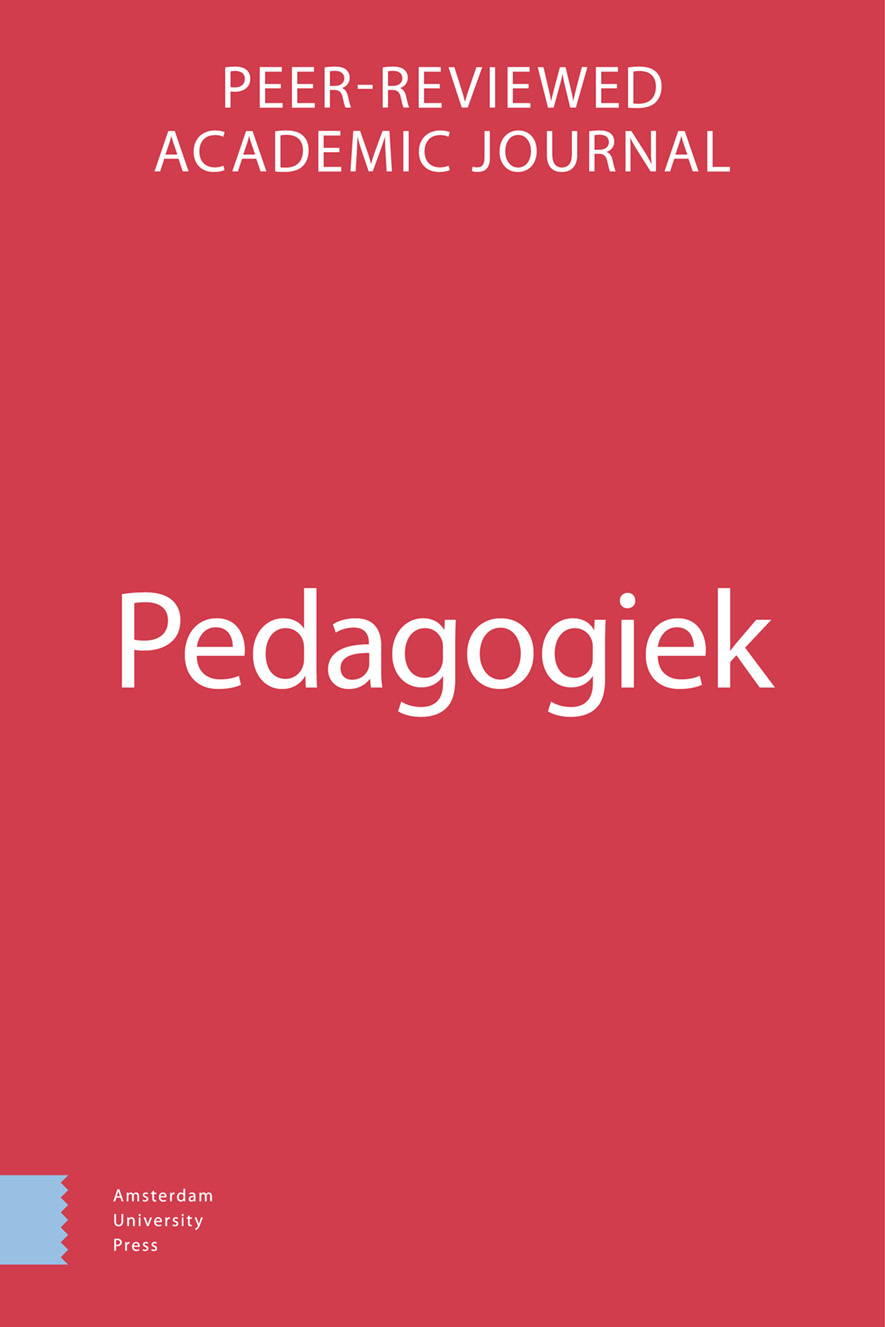-
oa Het failliet van onderwijs op maat: naar pedagogische werkplekken
- Amsterdam University Press
- Source: Pedagogiek, Volume 39, Issue 3, Dec 2019, p. 349 - 366
-
- 01 Dec 2019
Abstract
The bankruptcy of tailor-made education. The need for pedagogic (work)places
Education, youth work and youth care confront many challenges which are interpreted in many different ways and receive various responses. However, one type of response seems to be widely applauded: education and care should be tailor-made or become so: tailored to children and youngsters, to their talents and their lifeworld. This call for tailor-made education and care is often accompanied by an emphasis on the need for the development of talents and on the value of feeling-well. In this contribution we indicate how this response entails an approach to education as form of socialization. I.e. as practices that assist the (re-)production of a particular societal regime which calls upon us to conceive of ourselves as entrepreneurs and to permanently take care of our profile. The experience of a meaningful life risks thereby to become exclusively dependent on social recognition and comparison. In so doing tailor-made education risks to deny youngsters the chance for a pedagogical workplace i.e. a place where the world is presented and disclosed to them in such a way that it can provide them with a measure outside of themselves and allows them an experience of a meaningful life in relation to the work which is taking place there.


